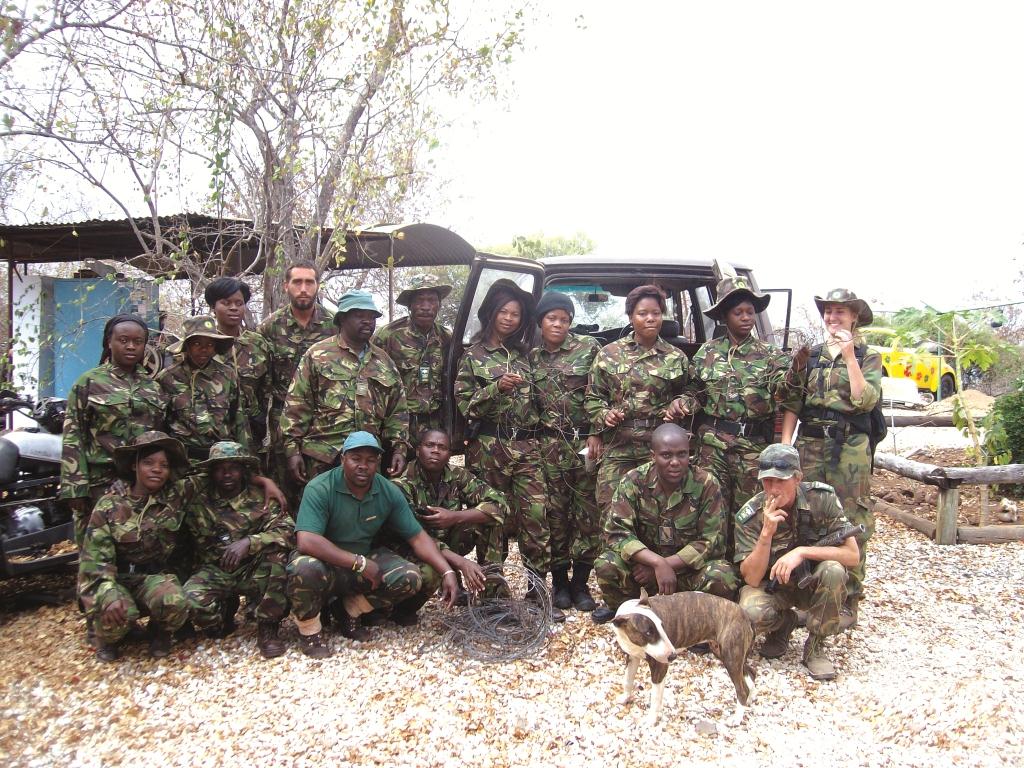When it attacks it is terrifying. It lowers its head and strikes powerful deadly blows with its horn. It is one of the most feared animals in the wild, yet it dies a sad death at the hands of poachers; mutilated or hacked. The horn, its pride and weapon, is used in traditional Chinese medicine and as a status symbol for the wealthy.

At the beginning of the 20th century, there were 500,000 rhinos across Africa and Asia. Today, there are a mere 29,000 in the wild. In South Africa, poachers killed 1,215 rhinos in 2014 – one death every eight hours.
“If the killing continues at this rate, we could see rhino deaths overtaking births in 2016-2018,” says Cathy Dean, International Director at Save the Rhino.
The poachers seem to be winning the war. Against them stand Siphiwe Sithole and her sisters in arms. Every night they creep into the dark, hunting the hunters. They strike like the fast venomous snake they name themselves after– the black mamba.
Loading...
“Sometimes, when we are sweeping the bush, we walk into animals. One day, we walked into two lions and they charged us. It was scary,” says Sithole.
The unit was born in 2013 with a team of six in the Olifants West region of Balule Nature Reserve in the Greater Kruger National Park in South Africa. A year later, the unit was slithering through the bush with ease, covering the entire reserve. Craig Spencer, Managing Director of Transfrontier Africa and Warden of Balule Nature Reserve, is the founder of the unit and who trains them.
Every day, they come across snares and poachers on the run.
“Each time, I see there is no report of a rhino being killed it makes me very happy and it makes me feel special. To see many months of no killing of our rhino makes me the happiest. It shows that we are doing our job well and the project is working,” says Sithole.
Two years later, the sisters with attitude are making their mark deep in the bush.
“Snaring within the Black Mambas’ area of operation has dropped by 76 percent since their deployment. Rhino poaching has dropped from 16 poaching incidents in the year prior to the deployment of the Black Mambas, to one poaching incident in 14 months,” says Amy Clark, Black Mamba Project Administrator.

Penalties for rhino poaching are also becoming more severe. In 2014, 386 people were arrested for poaching rhinos, rising from 165 in 2010. In 2014, rhino poacher, Mandla Chauke, received one of the heaviest penalties: 77 years in prison.
Just across the border in Mozambique is a cautionary tale. Here all of the rhino have gone. In South Africa, units like the Black Mambas stand in the way of poachers who threaten to do the same damage. Like rhinos themselves, they lower their heads and strike. Hell hath no fury like a Black Mamba.
Loading...
